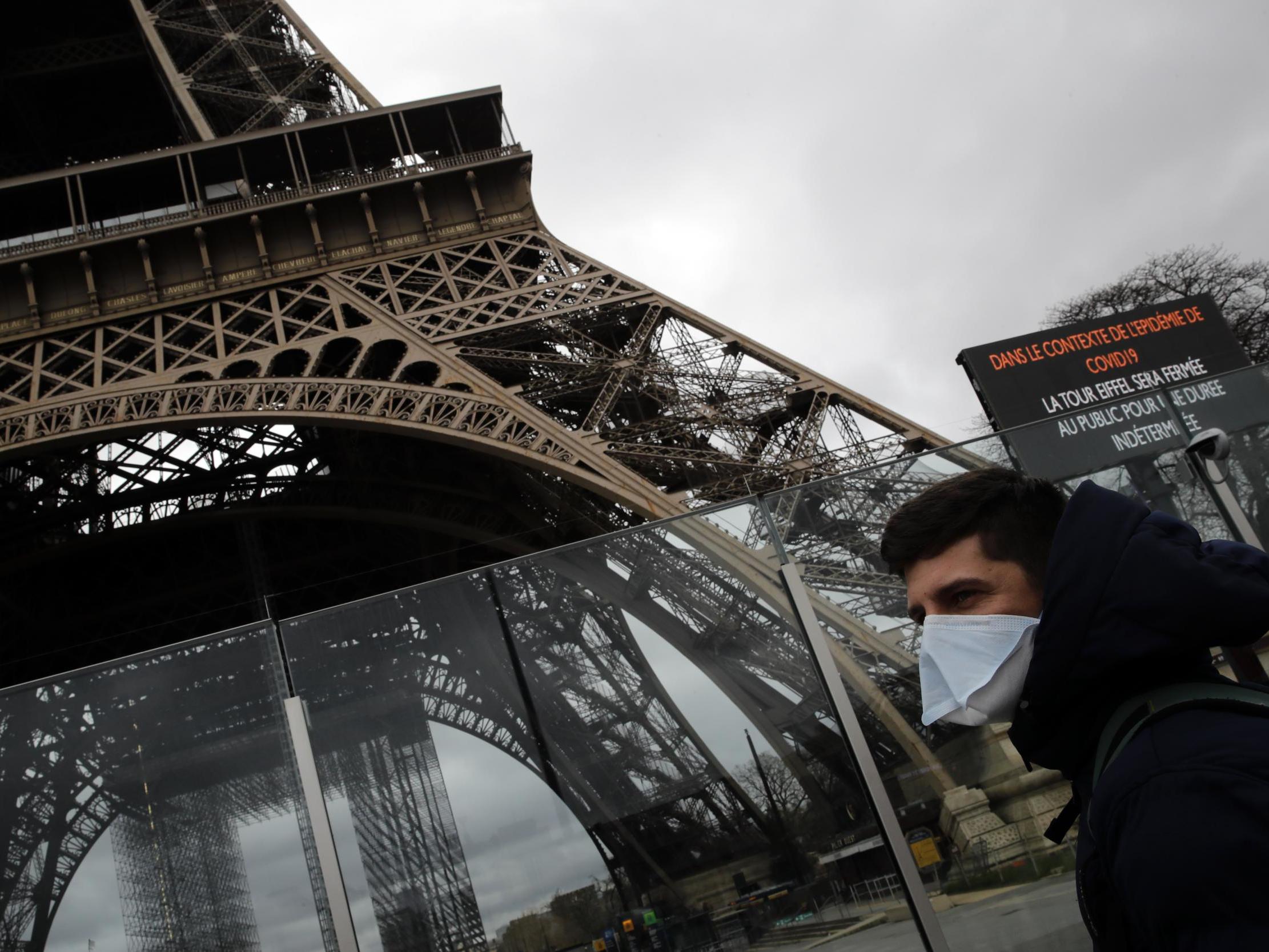Coronavirus: France orders closure of ‘non-essential’ public places to stop spread of disease
Advice to limit social gatherings not being well implemented, says prime minister

Your support helps us to tell the story
From reproductive rights to climate change to Big Tech, The Independent is on the ground when the story is developing. Whether it's investigating the financials of Elon Musk's pro-Trump PAC or producing our latest documentary, 'The A Word', which shines a light on the American women fighting for reproductive rights, we know how important it is to parse out the facts from the messaging.
At such a critical moment in US history, we need reporters on the ground. Your donation allows us to keep sending journalists to speak to both sides of the story.
The Independent is trusted by Americans across the entire political spectrum. And unlike many other quality news outlets, we choose not to lock Americans out of our reporting and analysis with paywalls. We believe quality journalism should be available to everyone, paid for by those who can afford it.
Your support makes all the difference.France is shutting most of the country’s shops, restaurants and entertainment venues to try to contain the spread of the coronavirus.
The order covers all “non-essential” public places, prime minister Edouard Philippe announced. Exceptions include food stores, chemists and petrol stations.
French authorities had already shut down all schools, banned gatherings of more than 100 people and advised people to limit their social life. But Mr Philippe said these measures were not well implemented.
“We must show all together more discipline,” he added.
Local elections nationwide will still go ahead on Sunday but with measures to keep people at a safe distance and clean shared materials, he said.
Health authorities say the country has 4,499 cases of the virus, including 91 deaths.
Earlier, security forces in Paris fired tear gas on and clashed with anti-government “yellow vest” political protesters who defied a ban on mass gatherings.
Paris police had already turned down requests for protesters to convene at sensitive sites, including the Champs Elysees where there were violent clashes between security forces and protesters a year ago.
“It’s Saturday, demonstration day. Some people think that the coronavirus won’t touch them and refuse to respect the advice,” said a riot police officer in front of a heavily armed vehicle blocking the road that leads to the presidential palace.
A police source put the numbers at about 400, some wearing protective medical masks, many chanting slogans against the government of president Emmanuel Macron.
Join our commenting forum
Join thought-provoking conversations, follow other Independent readers and see their replies
0Comments